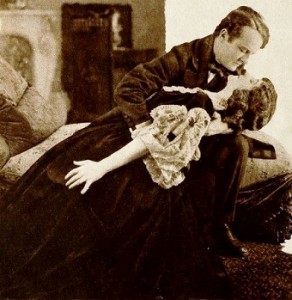Podcast: Play in new window | Download
Subscribe:
For more on the Majors PT Elements and PT Inventory go to www.aureliuspress.com/assessments.
00:26 Introducing Dr. Mark Majors, PhD. Today were talking with the Jungian psychologist Dr. Mark Majors who in addition to being a counselor and therapist is also a psychometrician who has developed several type assessments based on Carl Jung’s work.

02:29 Origins of the Majors assessments. Mark discusses the origins of the assessments he created. It started with reading Carl Jung’s work in depth rather than summary statements made by other authors. He emphasizes the importance of chapter 10 in Jung’s seminal book “Psychological Types.” He wanted to add the missing elements back into the Type world. Mark focuses on the fact that in the Introduction Jung states, “I observed…” which means he focused on information that lends itself to the psychometric. This includes Type as well as the mental processes which Mark refers to as the Majors-Jungian mental processes. This led to the creation of questions in marks assessments based on the observable.
06:25 Isabel Myers influence. Isabel Myers, while not being a psychometrician, was looking for observable evidence to support her work on the mental processes. She settled for the 16 types.
08:07 Theory vs Observable. Mark shares his thoughts on the significance of theory versus observing patterns. Mark proceeds to discuss Jung’s approach, his own, and the impact on assessments. He references the fact that the title of your’s book is, “Psychological Types,” NOT, “The Theory of Psychological Type.” Rather than theory, Mark’s focus is on quantifying what Jung said regarding each of the eight mental functions.
This is contrasted with the static model of dominant, auxiliary, tertiary, etc.
Jung felt that individuals are very dynamic and that they can change how they work with their mental functions as they go through life. Could be healthy or could be unhealthy but the reality remains that people are flexible in how they choose to go through life.
14:15 Majors-Jungian Processes Real Time Assessment. In light of this, Mark felt he had to come up with a more real-time measurement of the eight processes in addition to the components of the static model, i.e., the four dichotomous types, e.g., ENFP.
The value of using the eight Majors-Jungian process scores to evaluate a person’s progress over time is emphasized.
16:24 Therapy: Whole Type, personality formation, 8 Majors-Jungian Processes (MJP)-real time. The conversation shifts to the realities of therapeutic sessions where it’s potentially more advantageous to start with personality formation which is the second part of the Majors PT Elements. Mark developed the personality formation portion of the assessment directly from his understanding of Jung’s intentions.
Marks application of personality formation has two components, perseverance, where the individual indicates how much they rely on self, and adaptation which shows the extent to which the individual relates to other people. He goes on to explain how the scores in this particular area of the Majors PT Elements help the therapist to determine questions that can be asked of the individual as to how they have chosen to walk through life in both dealing with themselves and with others.
23:07 Therapy: Direct connection. The therapist can make a direct connection using the personality formation scores.
23:54 Therapy: Theoretical punishment. The term “Theoretical Punishment” is described along with the need to simply listen to the individuals story as to how they have adapted rather than project the consequences of a given model.
The goal is to find a way to help them improve the way they respond to and adapt to life to help them feel better rather than to pull the rug out from under them and “take them to the woodshed.”
So, starting with the story via the personality formation scores without any theory in the way will help the client find their path. That is what is behind the development of the Majors assessments.
26:24 Therapy: Static models. With only the static model all we can do is look and guess. This is where theories are at risk for going astray.
29:17 The Importance of Psychometrics and Observable Reality. Consequently, the psychometric portion of question development is very important so that a valid connection is made with the individual in order accurately measure what can be observed.
In line with this he talks about the development of the majors PTI back in 2001 including the alpha coefficients and validity along with the search for best fit.
The key point is the assessments are based on fit with observational reality first and the psychometrics second in contrast to a lot of other assessments were the primary focus is psychometrics.
32:56 Psychometric Arrogance and Error. Psychometric arrogance and psychometric error can occur when the focus is on a best-fit psychometric approach at the end of a workshop rather than sitting with the individual as a first step to insure there is a genuine connection with the assessments results.
An example is given of the real life, flesh-and-blood common reality that is at the core we are trying to get to when using assessments. The psychometrician is saddled with trying to quantify these very human experiences and putting a label on it. One must tread very lightly and carefully.
During training sessions Mark encourages attendees to focus on and push the storytelling rather than getting caught up in the assessment itself.
In developing the PTI and PTE Mark always had in mind using the assessments to get to the story.
Working in this manner puts humanity into the instruments.
41:00 Assessment As Story Guide. The personality formation scores than the eight Majors-Jungian process scores will give a good “read” on what is going on in the person’s life today separate from what their static Type is.
A specific example of how this works is given.
45:20 Development of the 8 MJP Process Scores. The discussion moved on to the development of the eight Majors-Jungian process scores. It took Mark a decade to develop the eight process course. He explains the “frontier” work that was required. It all comes back to getting the story.
49:07 Real World Application of 8 MJPs. Mark talks about the real world application of the results of using his assessments with the 8 Majors-Jungian Process scores to help people, for example, improve their performance at work.
51:07 Uniqueness of 8 MJP. Mark points out that only his assessments measure the eight Majors-Jungian processes directly. Application in therapeutic sessions as well as during life coaching events is discussed. This includes being able to re-administer the assessment over time to see how the client is progressing, standing still, or falling back.
53:02 Intentionality, Use of Assessments, and The Guru Trap. An emphasis is placed on avoiding getting caught up in the tool in any theory associated with it. It’s all about making a connection. It’s about helping the person with what they want help with rather than pushing the assessor’s agenda. The potential trap of a “guru philosophy” and the harm that can cause is explained.
The purpose of the tool (assessment) is only to help the client gain a better understanding of himself in order to decide what to do. This is in contrast to the clinician deciding what is best for the client. Rather, the clinician/life coach/change manager can work to help the client discover what needs to be seen rather than forcing it upon them.
What can work better is more of a Rogerian approach where the client innately has a sense of what’s best for them and the assessor’s job is to help bring that to the conscious mind to be worked with.
A humorous example is given of an “I’m the boss and know what’s best” approach that was frustrating and wasted a lot of energy. It is better to have humility, empathy, and understanding to encourage the individual to move in a direction that is in their best interest.
1:01:28 Pop Psychology and Free Assessment. The challenges of pop-psych “assessments” are discussed and compared to the validated results one can get with the Majors assessments.
For more on the Majors PT Elements and PT Inventory go to www.aureliuspress.com/assessments.
Your feedback is important. Choose from the following options:
- Click on “Send Voicemail” over to the right,
- place a review in iTunes,
- click on “leave a comment” below,
- send any comments along with your name to comments@thriveandconnect.com or
- call us at 614-664-7650.
Listen to future episodes for our reply.
 to do with it. The couple, who have agreed to be public about the assessment are Jennifer from Aurelius Press and her partner Ben.
to do with it. The couple, who have agreed to be public about the assessment are Jennifer from Aurelius Press and her partner Ben.